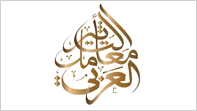Forgiveness and its relationship to religious commitment among a sample of couples in the city of Sabha
DOI:
https://doi.org/10.51984/johs.v22i2.2805Keywords:
Forgiveness, Religious Obligation, SpousesAbstract
The aim of the current study was to explore religious commitment and its relationship with forgiveness among a sample of couples in the city of Sabha. The study adopted a descriptive-analytical methodology, and the study sample consisted of 84 married couples selected randomly. The study utilized two tools: a religious commitment scale and a forgiveness scale, both of which were developed by the researcher. After ensuring the validity and reliability of the study tools, the following results were obtained: There are differences in the average scores of the sample members, indicating a high level of religious commitment among the study sample, There are statistically significant differences in the forgiveness scale, indicating a high level of forgiveness among the sample members ,There is a positive relationship between religious commitment and forgiveness among the sample, There are significant differences in the forgiveness scale based on age, favoring older individuals, There are no statistically significant differences in religious commitment based on gender, with males and females showing similar levels of commitment, There are statistically significant differences in forgiveness based on gender, with males showing higher levels of forgiveness compared to females, There are no statistically significant differences in religious commitment based on educational level, There are no statistically significant differences in forgiveness based on educational level.
Downloads
Downloads
Published
Issue
Section
Categories
License
Journal of Humanities Policy on Intellectual Property and Plagiarism
1. Commitment to Intellectual Property and Ethics
The Journal of Humanities (JOHS) is fully committed to respecting intellectual property rights and aims to protect the originality and authentic work of authors who submit their manuscripts for publication. The journal takes a firm stand against articles that contain any form of plagiarism and emphasizes the need for all researchers to adhere to the highest ethical standards in scientific research.
2. Anti-Plagiarism Policy
The journal considers plagiarism a serious violation of academic ethics. Therefore, authors must ensure that their work is original and not plagiarized, and that any use of external sources is properly cited and documented according to correct academic standards.
-
Actions Taken: In the event that any plagiarism or academic theft is discovered in a submitted article, the editorial board will contact the author to request a formal explanation within a maximum period of two weeks from the date of notification.
-
Investigation and Decision: After receiving the explanation, the article will be referred to the journal's specialized committees, which will investigate the matter and take the necessary measures, which may include the permanent rejection of the article and the imposition of disciplinary actions.
3. Publication License and Author Rights
The journal adopts the Creative Commons license type Attribution-NonCommercial-NoDerivs 4.0 International (CC BY-NC-ND 4.0), which allows for the following:
-
Attribution: Users are entitled to cite the content published in the journal and use it in their work, provided that the original source and author are clearly credited.
-
Non-Commercial: The published content may not be used for any commercial purpose.
-
NoDerivs: It is not permitted to make any modifications, distortions, or to build derivative works from the published content.
Under this license, authors are required to complete an exclusive license agreement for the journal. Authors retain the rights to their research data and may reuse and share their work for scientific purposes with proper citation.







